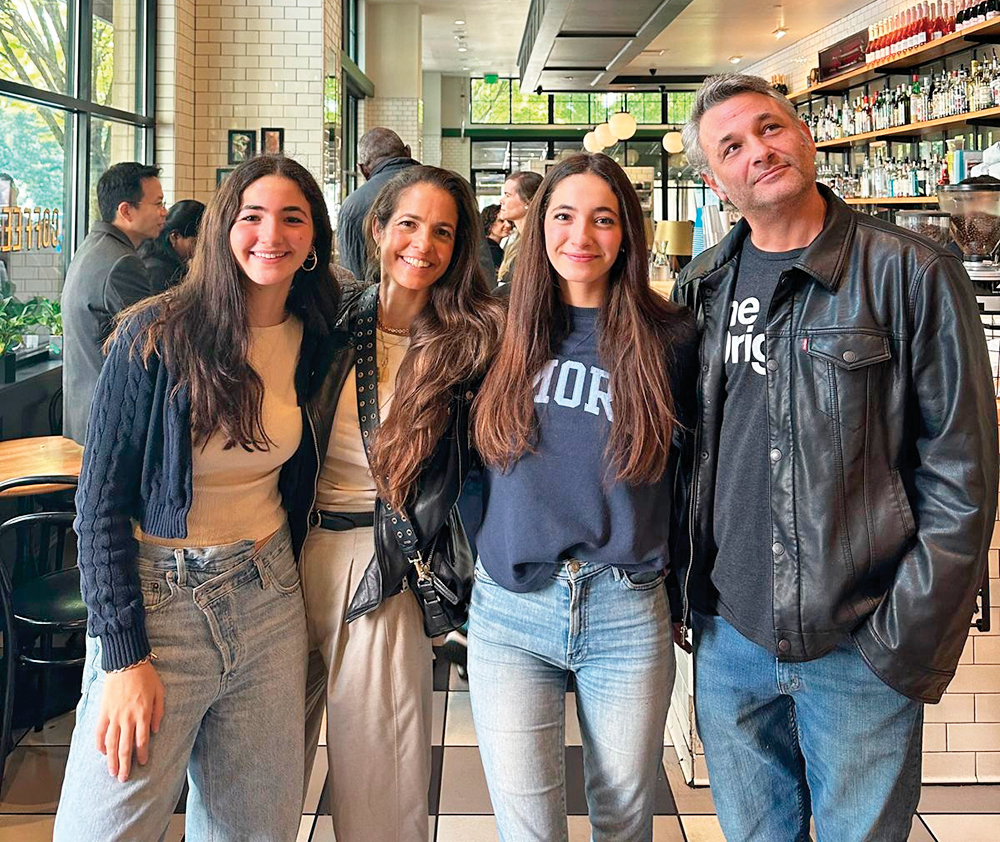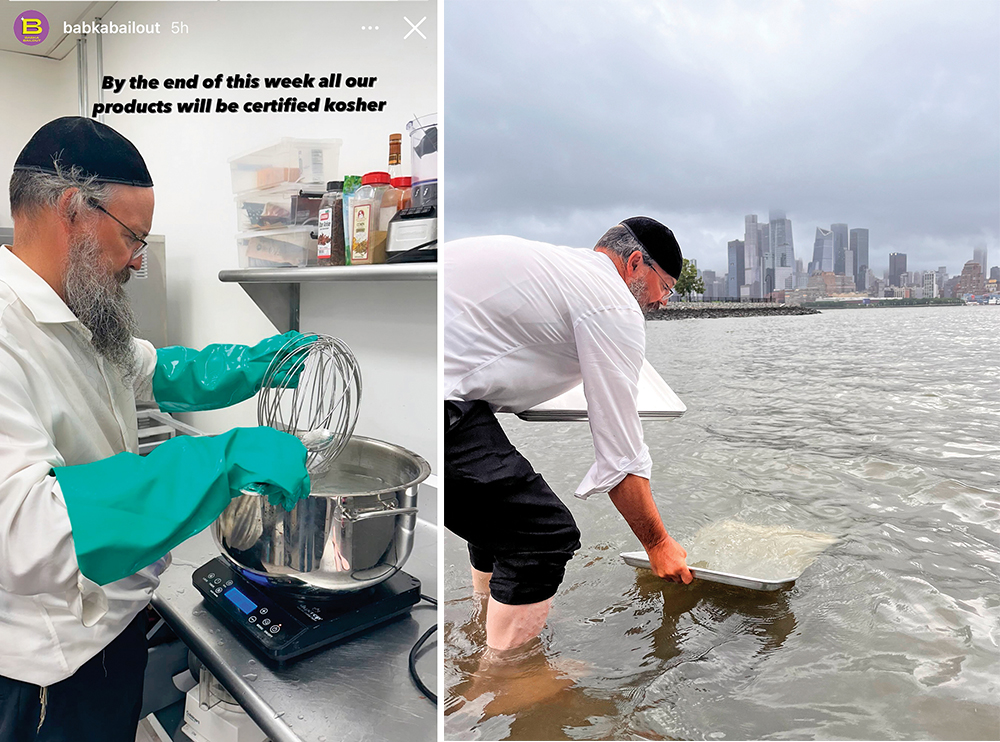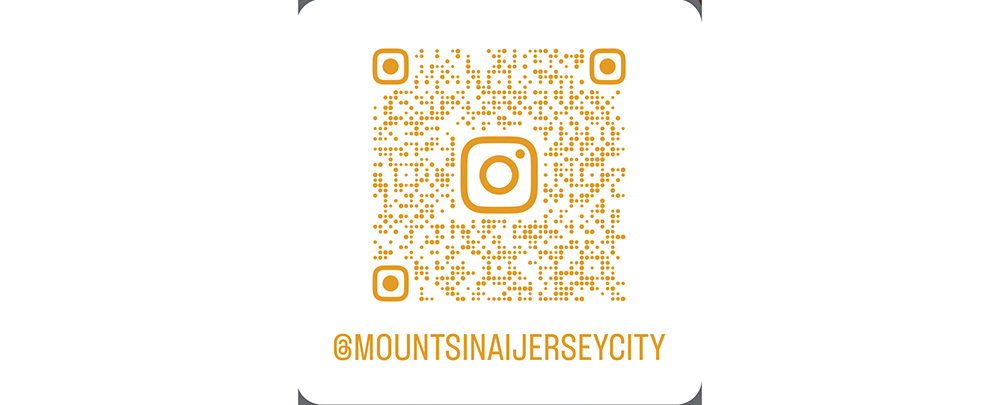
(Courtesy of Babka Bailout) Jersey City’s Congregation Mount Sinai, the oldest continuously operating Shul in Hudson County, is reviving the Jewish community of Jersey City Heights. Under the guidance of its spiritual leader, Rabbi Netanel Reed, they have developed a multitude of development strategies. As part of this process, Jersey City’s Babka Bailout recently received a hechsher (certification) to make it possible for observant Jews to enjoy Babka Bailout’s sweet treats.
Formed in May 2020 at the height of the Covid pandemic, Michal Prevor opened the bakery to raise money to help a fellow mother who was struggling financially from the adverse economic effects of the pandemic. The friend was having trouble feeding her family of five. The plan was to make and sell homemade babka and give the proceeds to her friend. Michal had never baked a babka in her life before she thought of opening the business.
Since that time, the venture has bloomed into a thriving business. The freshly made babka and wide variety of fillings are available not only at a Central Avenue retail storefront in Jersey City Heights’ main business district but wholesale as well, through specialty grocery stores, Manhattan cafes and natural markets.
Prior to Purim in March of this past year, Congregation Mount Sinai’s Rabbi Netanel Reed heard rumors that an Israeli-owned bakery was baking hamantashen within his neighborhood. In no time, he was at the bakery door to ask its owner whether she might consider going kosher. After careful deliberation and months of planning, Prevor agreed to do so.

“Giving back to the community and providing tzedaka were always part of my upbringing,” Prevor said. “My parents took care of anybody needing help with whom they came into contact. They ingrained within me that doing so is a moral obligation and reflects a righteous behavior that is part of being a Jew.”
On a local moms’ Facebook group, she posted that she was selling babkas to help her friend. Within five minutes, she quickly sold 40 babkas at $14 each.
“The name for the company was my husband’s idea,” Prevor said. “The name was a fun spin—the babka would bail out my friend.”
Michal’s husband, Grant Prevor, a home builder who baked as a hobby, made the first batch of babka, while she watched and learned. Their two daughters, Ariel and Amelie, who were 15 and 12 years old at time, pitched in. “Everyone was working,” Prevor emphasized. “All hands on deck. It gave us a schedule, and it kept my kids busy during the pandemic when a lot of other kids were very depressed because of forced inactivity.”
The business grew steadily and just took off. “I was making hundreds of babkas a week from home,” she said. “It was quite an adventure. I had to start very early—the babkas had to rise. The oven could only fit eight babkas at a time, and it took 45 minutes to bake the babkas in the home oven at 350 F.” My oven door literally fell off from all of the opening and closing.”
By September, 2022, Babka Bailout moved to the commercial storefront it presently occupies. Prevor’s once-financially-struggling friend still works with her every day in the bakery. For product inspiration on babka varieties, Prevor says she draws on the diverse populations of New York and Jersey City, as well as from her own background.

A Solid Jewish Identity
Until she was 6 years old, Prevor grew up on a moshav (an agricultural cooperative) in the Sinai Peninsula where her father, Ofer Rozenfeld, had a farm. In 1981, pursuant to a peace treaty with Egypt and ahead of Israel’s impending withdrawal from the Sinai, the family moved to Santo Domingo, capital of the Dominican Republic, where her father continued his farming. Years later, when the five Rozenfeld siblings were coming of marriageable age, the family returned to Israel so that the children would be able to find spouses and to serve in the Israel Defense Forces. Prioritizing Jewish identity was therefore something to which Michal was accustomed.
A Kosher Future
When Rabbi Reed met with Michal in March to evaluate her baking equipment and ingredients, he developed a plan for how to best move forward. Rabbi Reed’s idea was to initially provide kosher supervision of the bakery as a local rabbi who had appropriate training until Prevor could establish enough kosher clientele to justify the cost of kosher certification through a nationally recognized agency.
Reed consulted Rabbinic Coordinator Yakov Teichman at OK Kosher Certification, one of the nation’s largest kosher certification agencies, for advice. Rabbi Teichman is responsible for the food service department at OK. After Passover, Rabbi Teichman generously spent several hours with Reed and Prevor in the bakery in order to assess its feasibility as a kosher establishment. Most of the babka ingredients were already kosher. Having a Jew participate in the baking process and tithe a portion of the dough for the Kohanim were also manageable issues. In the end, Rabbis Teichman and Reed agreed that the only real stumbling block was Shabbos. A Jewish-owned kosher bakery cannot be baking or doing business on the Sabbath.
This regulation can be daunting for someone who has not done it before. How can somebody close their business on the busiest day of the week and not merely survive but thrive? It seems to defy business logic.

“I don’t want to say it requires sacrifice,” Rabbi Reed explained, “because that would imply that you are losing something. You do not lose anything when you keep Shabbos,” Reed emphasized. “Hashem assures this. He rewards you for doing what He has asked you to do.”
After consulting with her husband and family, Prevor was ready to make the commitment not to bake or transact business on Shabbos and thus receive kosher certification. Prevor’s parents had indeed passed the torch.
Rabbi Reed and Prevor worked together over the next several months to kasher every aspect of the bakery. The bakery is the first hashgacha (kosher certification) of CMS Kashrus, the new kosher certification entity of Congregation Mount Sinai of Jersey City Heights. As part of his plan to make JC Heights a more attractive location for Jewish families to settle, Rabbi Reed hopes to enlist additional food vendors within the area to also “go kosher.”
Prevor’s two daughters couldn’t be happier with their mom’s decision to go kosher. Clearly, Michal and her husband Grant have already passed the torch onto them.









